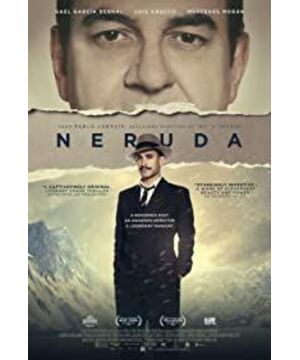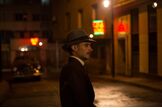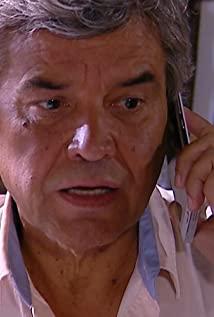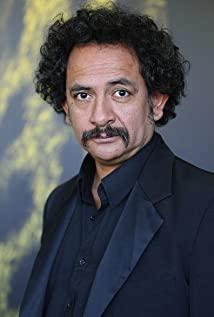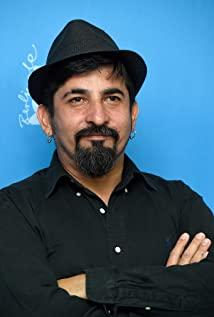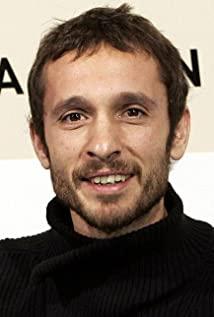The plot of "The Hunt for Neruda" does not need to be repeated. The Chilean poet Neruda's life is so grand, poetry, politics and love, any entry point is not fully covered by a film of only two hours.
Pablo Larraín chose to confine the film to a period in Neruda's life, a time when he was a political prisoner. Different from Pablo Larraín's previous "First Lady" (Jackie), which has entered the traditional biographical film format, this close-up of Neruda's life emphasizes less on his life and less on the ups and downs of the plot. The character police detective Oscar Peluchonneau's perspective is fragmented and focused on telling the two people's "cherishing each other" days.
In fact, the film is nothing more than "the art of watching", and how to watch it, who is watching it, and why it is watched this way constitute the key to the audio-visual language. In simple terms, looking for a long time can also be interpreted as "gazing", but according to Jacques Lacan's Mirror Phase, "the eye is an organ of desire", so staring projects desire (Scopic Drive). And Lacan said, "Desires pursue goals that are lost forever." Clear and concise, the stare comes from the narrator's detective, staring at Neruda's ongoing pursuit and loss.
First of all, speaking a monologue from a first-person perspective is unavoidable in most biopics, and the speaker's identity is often unquestionable. However, when the audience slowly learned the identity of the narrator, the speaker himself began to doubt his own identity. A child born in a brothel did not know who his father was, which made the audience also began to question the credibility of his perspective.
The loss of the father role can be read as the absent object, the desire for the presence of the desired object in the gaze. With such a background, the desire for Neruda's gaze projection is stronger than ordinary people. What’s interesting is that, as Lacan believes that “fantasy can only reach the desire itself - the hollowed out filler of reality”, the “peluche” in the detective’s last name means stuffed animal in both Spanish and French .
After Neruda left his wife, the detective chased him into the house to inquire about his whereabouts. Under the scene of constantly changing backgrounds but continuing to have a conversation, the wife pointed out that the detective was actually created by Neruda. A police detective is like a hound that is always slow, following the clues laid out by the poet to the designated path, and exists between the lines of the police and gangster novels. During the conversation, the detective asks the wife:
- Am I fictitious?
- Yes.
- Are you fictitious?
- No, I am real and eternal.
Here eternity is mentioned again at the end, where the detective's narration is so eager for Neruda to say his name that he ceases to be a supporting role only when his name is said.
The viewpoint that "no one will know I exist if I don't say it" also reveals the philosophy of existentialism. On the one hand, it is the direction of Sartre's personal meaning: whether the meaning of the police detective in the film is given by himself, the director, or the Was it given by Neruda? On the other hand is the direction of the existence of the film: Is the value of the existence of the film, as André Bazin said, "the value of the film comes from the author", or is it given by the audience, or even created by the characters in the film?
The director's interview mentioned that the film was meant to create Neruda's world, Neruda's universe. So why is this world expressed only by some escaped life passages? The existence of the detective role has always been to set off how the protagonist Neruda escapes and fights artistically, but in the end, Neruda spoke about him as the detective expected. After the name, the detective reopened his eyes from under the coffin lid:
Neruda made me eternal, I was born between the lines, and now I am flesh and blood.
The narrator of the whole film suddenly became the protagonist of the film from a supporting role, no longer the life written by the poet. Accordingly, the poet's world is created, observed, and narrated to the audience.
Look what you wrote, Sergeant. You wrote the snow and the horses, you shaped me.
Fragmented editing, as if poetry is imaginative, re-deconstructs everything in the world. While the dialogue between characters continues uninterrupted, the scene is constantly changing. The continuous dialogue creates a sense of continuity in time and space, but the changing background breaks the limitations of space. In fact, this fugitive life, is it not a poem that Neruda wrote for himself that is not on paper?
As Pablo Larraín said in an interview with the director, it is the poet who helps Chile remember history. Likewise, Neruda shaped the detective Oscar Peluchonneau, and the detective shaped him. It was Neruda who made the real people, and the people made the real him.
This article was first published on the public account: Cocoon from a virtual hole (WeChat: cocoonics)
Welcome to pay attention~
View more about Neruda reviews


